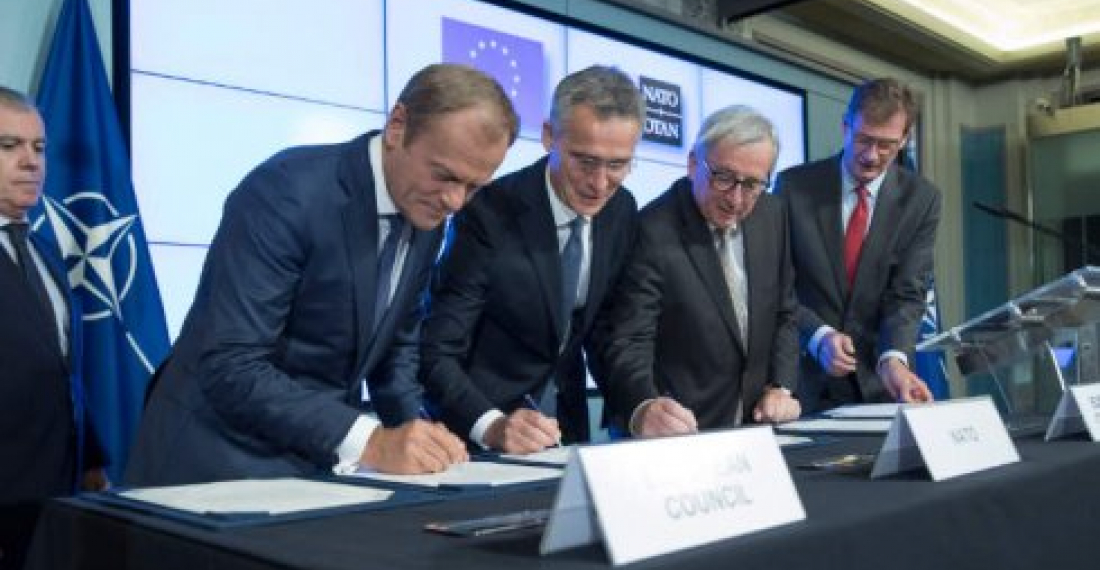НАТО и Европейский союз определили военную мобильность как ключевую область сотрудничества между ними. Совместная декларация, подписанная в июле 2018 года генеральным секретарем НАТО Йенсом Столтенбергом и президентами Европейской комиссии и Совета Жан-Клодом Юнкером и Дональдом Туском, подтвердила взаимосвязанные интересы в безопасности союзников по НАТО и государств-членов ЕС и важность сотрудничества для поддержания инициатив в области обороны обеих организаций.
"Военная мобильность важна для позиции НАТО по сдерживанию и обороне, и в настоящее время является ключевым направлением сотрудничества с Европейским союзом. Быстрое перемещение союзных войск в Европу и по всей Европе и их снабжение является важной логистической задачей, связанной с привлечением многих заинтересованных сторон на национальном и многонациональном уровне, что будет отработано в ходе учений Trident Juncture 18 в октябре и ноябре", - пишет Питер Уильямс в последнем выпуске «Обзор НАТО».
"Украинский кризис 2014 года усилил опасения союзников в отношении возрождающейся и настойчивой России. Он подчеркнул необходимость быстрого и уверенного усиления союзников на периферии границ НАТО, чтобы сдержать потенциальную угрозу и, если сдерживание потерпит неудачу, защитить союзника от нападения. Кроме того, конфликт в Сирии и рост терроризма, кибератаки и другие формы гибридной войны против союзников подчеркивают потенциал конфликта во всем национальном и международном спектре и необходимость усиления координации для обеспечения готовности и устойчивости. Также стало ясно, что Альянс должен быть в состоянии сделать все это: от коллективной обороны, от кризисного управления, до прогнозирования стабильности за пределами наших границ, для содействия борьбе с терроризмом. Таким образом, времена изменились, а риски и бремя увеличилось», - пишет он.
Вы можете прочитать полную статью в "Обзоре НАТО" здесь
источник: Обзор НАТО, Брюссель






